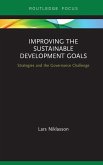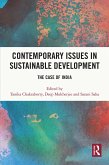Dieser Download kann aus rechtlichen Gründen nur mit Rechnungsadresse in A, B, BG, CY, CZ, D, DK, EW, E, FIN, F, GR, HR, H, IRL, I, LT, L, LR, M, NL, PL, P, R, S, SLO, SK ausgeliefert werden.
Sangit Kumar Ragi, Professor, University of Delhi, India
"At a very critical temporal juncture when the vengeful demi gods of neoliberal capitalism are reaching the stage of self-actualization, regarding the apocalyptical consequences of the age of high mass consumption. This book engages in the task of epistemic emendation of the literature on the critique of neoliberal institutionalism and global cosmopolitanism".
Sanjeev Kumar H.M., Professor, University of Delhi, India.









